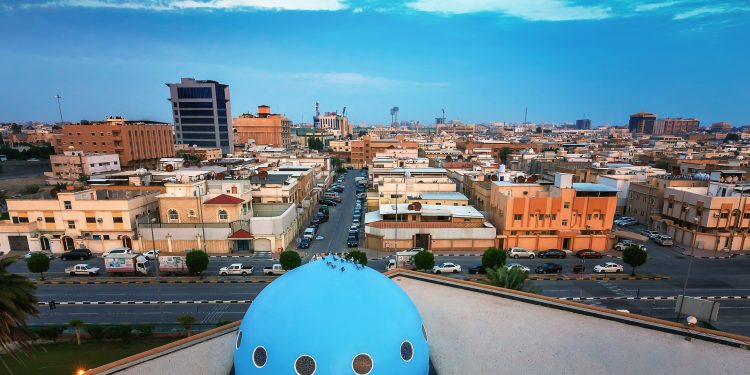The Saudi capital is grappling with a significant real estate shortage, particularly in the housing market, as the demand for residences surpasses the rate at which new properties are being developed. This deficit is intensifying rental costs and is anticipated to worsen with the expected population influx following the implementation of the Regional Headquarters (RHQ) policy.
Industry specialists predict that the scarcity of appropriate living spaces will continue to place economic pressure on new residents, especially those who have relocated due to their companies establishing a presence in Saudi Arabia in compliance with the RHQ program. This initiative mandates firms to move their headquarters to the kingdom to secure government contracts.
According to real estate analysts, rental rates in Riyadh’s northern districts have escalated by up to 23 percent in the previous year. The city’s population growth, which was recorded at 5.1 percent last year, is likely to surge further due to the RHQ program, exacerbating the housing shortage.
The population increase hasn’t been matched by a growth in residential properties, leading to higher occupancy rates and presenting both opportunities and challenges, including a supply deficit that affects housing for expatriates,
stated the head of a leading real estate firm in Saudi Arabia.
Expatriates are particularly feeling the pinch, with challenges in locating suitable and affordable housing. These difficulties come amid Saudi Arabia’s Vision 2030 initiative, which aims to diversify the economy and attract foreign talent and enterprises. The headquarters mandate has intensified the demand for housing, causing rental prices to soar, with apartments experiencing a 13 percent increase in rent on average, compared to a 10 percent rise for villas.
As the populace grows, especially around major office and commercial hubs in Riyadh, rental prices have spiked, with the average annual rental now at SAR24,800, and the highest in certain areas reaching SAR44,200. Middle-income families and single workers are finding it increasingly difficult to find affordable housing within their budget range. Government initiatives are in place to address this gap, but progress is gradual.
Regulations that restrict certain neighborhoods to families have left single male expatriates with limited housing options. While more dormitories are being built, the current development does not meet the high demand.
Private developers are contributing by constructing more apartments and co-living spaces targeted at single expatriates, yet affordable and available housing continues to be a challenge,
a real estate analyst commented.
Despite the struggle to meet the heightened demand from expatriates, there has been an increase in investment focused on expat housing projects. This indicates potential long-term market growth, although it has been slow to materialize in terms of available supply.
Furthermore, the RHQ policy is expected to boost the real estate market further, as businesses setting up headquarters in Riyadh will heighten the demand for high-quality office spaces and residential properties. The kingdom’s strategic development plans have also piqued the interest of non-local buyers, highlighting the promising outlook for Saudi’s real estate sector. However, the market is still adjusting to new regulations, mortgage options, and foreign ownership laws. Foreigners can own real estate in the country but require approval from the licensing authority. While new laws permitting broader ownership by non-Saudis were under discussion, they have yet to be enacted.


